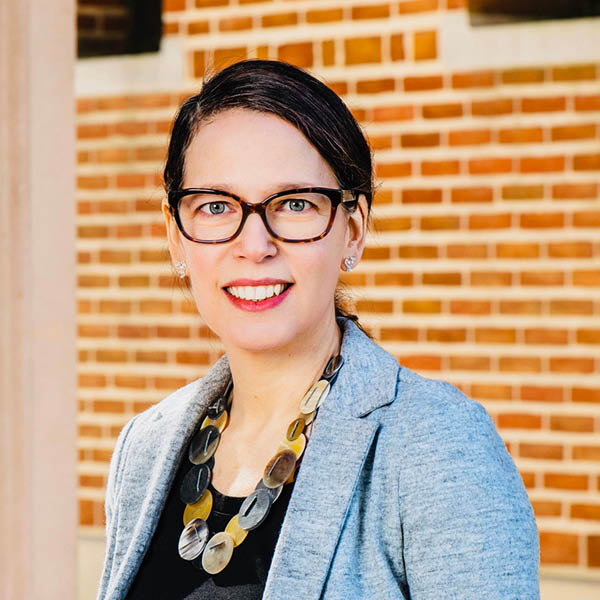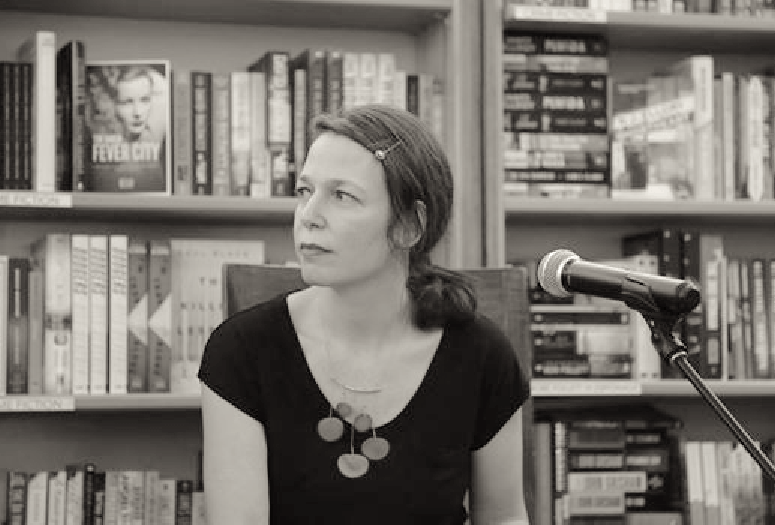Gisela Heffes, professor of modern and classical literatures and cultures, has been appointed co-president of the Association for the Study of Literature and Environment (ASLE). She’ll serve the two-year term alongside George Handley, professor of interdisciplinary humanities at Brigham Young University.

One of her first acts as co-president was to compose a greeting message to her fellow colleagues and ASLE members, an institution that supports teaching and learning in the fields of environmental literature, ecocriticism, environmental studies, literature and science. Heffes wrote the welcome message in both English and Spanish.
“There’s never been anybody from Latin America in the presidency, I believe. One of our goals is to diversify and abandon monolingualism,” Heffes said. “It’s so important to emphasize the presence of Spanish in the United States, and I am extremely lucky that ASLE officers and members are very open to implementing these changes.”
Heffes is the second professor from Rice appointed to the position. Legendary English professor Walter Isle, who was the founding co-director of Rice’s Center for the Study of Environment and Society, served as ASLE director from 1999-2001. His legacy can be seen at Rice in an environmentally focused endowment for English majors and the annual Walter Isle Lecture through the Center for Environmental Studies (CES).
Heffes shares that passion for literature and the environment. At Rice, she teaches the first Environmental Justice course ever offered and has created new ones like the spring’s Toxic Matters in Latin America. This course is innovative in that readings are available in both English and Spanish, and students can also write their final papers in English, Spanish or Portuguese, depending on their preference.
A prolific writer and editor, Heffes released three books in 2020 alone, including “The Latin American Ecocultural Reader,” a collection of seminal Latin American pieces on the environment, many of which were presented in English for the first time. The other two are being translated from their original Spanish this year: “Cocodrilos en la noche” (“Crocodiles in the Night”), a semiautobiographical novel documenting the death of her father mostly from afar via social media updates, will be translated into English, while “El cero móvil de su boca” (“The Mobile Zero of Its Mouth”), a short book of poetry inspired by the fleeting beauty of a Montreal summer, was recently translated into Portuguese and French.
Equally exciting, she said, has been the opportunity to translate others’ work via her podcast with Austin-based platform Hablemos, Escritoras. Heffes presents a different environmentally focused writer with the same set of three questions and shares their answers and ideas in each episode of “Estéticas del antropoceno” (“Aesthetics of the Anthropocene”).
“These writers are doing an incredible job,” Heffes said. “It's a privilege to interview them and circulate their work.”
Since 2018, Heffes has partnered with University of Houston creative writing professor Cristina Rivera Garza to bring important Latin American authors to Houston for an ongoing series of residencies, lectures and workshops. And since 2014, Heffes has collaborated with Houston-based Literal Publishing to produce and archive books, plays and other works by important Latin American authors who reside in the U.S.
Heffes hopes to bring this same energy to ASLE during her tenure, where she and co-president Handley share the goals of making the association more international and less Anglophone by bringing in voices and literature from across the world, working with local communities and fostering public engagement through a range of interdisciplinary projects.
You can already see this in action with a new collaboration between ASLE and Rice: “Planeta herido: una conversación” is a Spanish-language companion to the ongoing Planet Now! lecture series sponsored by CES. Planet Now! has brought such voices to Rice as “How to Save a Planet” podcast co-host Ayana Elizabeth Johnson; Heffes’ first “Planeta herido” was a conversation with Argentinian writer Samanta Schweblin, whose celebrated novel “Distancia de rescate” (“Fever Dream”) was the basis for a movie by the same name that recently debuted on Netflix.
“To make people feel that they're welcome and included, that's something we really want to do,” Heffes said. “Together with George Handley, who is a colleague that I admire, we can both reach out to more people and plant more seeds.”

